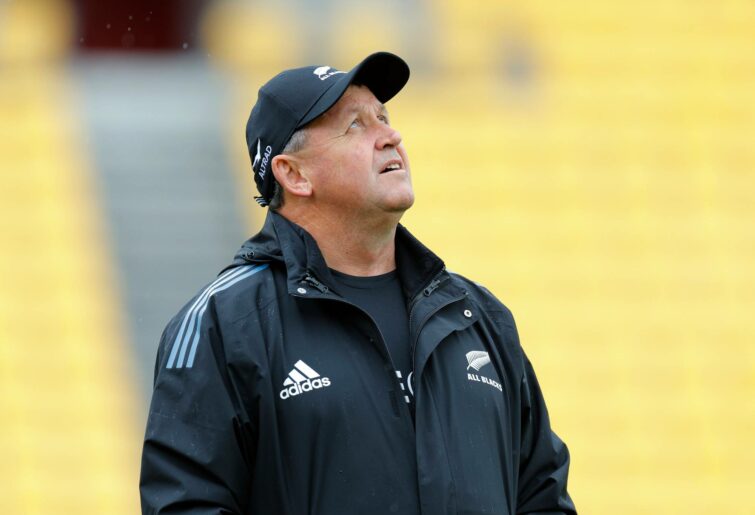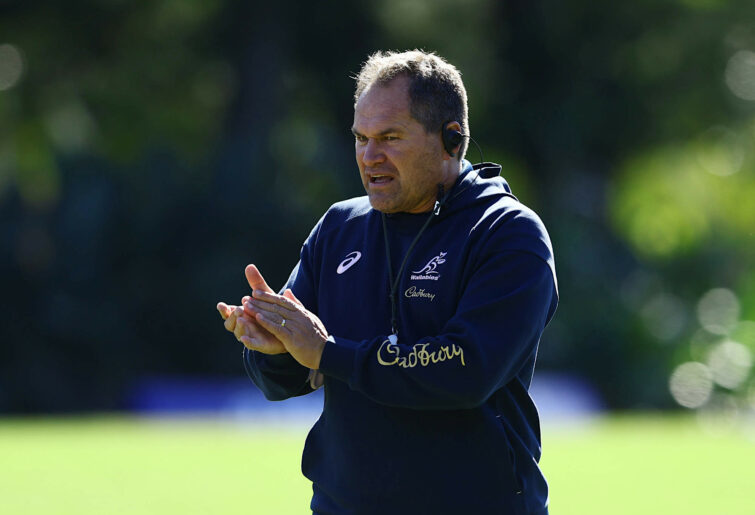I’ve always hated speculation about a coach’s tenure and it’s worse when media narratives become self-fulfilling – where an under-pressure coach’s team loses a game while referring to previous reports of the coach being under pressure.
Every new reference to previous reports of pressure becomes a future reference itself, and so the cycle continues and builds upon itself.
If a team decides not to renew a coach’s contract, then fine. Sometimes appointments work out, sometimes they don’t. But sacking a coach before time? Nope, don’t like that. Never have.
Coaches don’t miss tackles, don’t throw poor passes, don’t play the wrong shot, don’t miss the open goal.
Coaches don’t form splinter groups of disgruntled individuals who don’t handle criticism. Coaches really don’t have a lot of impact on a game at all, once it’s underway. They rarely get the credit they deserve in good times, but are the quickest and easiest to isolate and line up in the crosshairs in the bad times.
What New Zealand Rugby is putting Ian Foster through right now is, frankly, disgraceful.
Foster made reference to the media speculation around his position after the All Blacks’ epic win at Ellis Park on the weekend, but make no mistake, the media commentary of Foster’s position now is being fuelled purely by NZR’s bizarre public utterances.

Ian Foster (Photo by Hagen Hopkins/Getty Images)
The decision to call a press conference after such an extraordinary win and then say nothing to promote even the slightest semblance of confidence in Foster and the team is a public relations failure on so many levels. I said a few weeks ago that it felt like Australian rugby areas, but it might even be surpassing that.
So with all that said, and my own position on sacking coaches now hopefully clear, let me make this second point.
Frustrating, underwhelming, and disheartening losses like the Wallabies’ 31-point thumping at the hands of Argentina in San Juan are exactly the kind of performances that provide the current spark for what could quickly and easily become a future inferno of pressure on Dave Rennie.
Again, for the removal of all doubt, I don’t want the coach sacked and I don’t think there is currently any appetite to.
But that performance in San Juan can make it easy to start building the narrative for anyone who wants it.
Once again, the curse of the slow Wallabies start landed early blows that the side never recovered from. From two simple little errors, Los Pumas led 14-0 after seven minutes, and 73 minutes of catch-up rugby takes a lot of work – particularly when the mistakes continue.
I mentioned this in the Two-Up last Thursday, but it’s a continuation of a trend that goes all the way back to the start of last season. The Wallabies are yet to lead at halftime in 2022, and only twice in 12 games since the start of the 2021 season where they’ve trailed at the break have Australia managed to go on and win.
Conversely, they’ve won all seven games in which they’ve led or been level at halftime in the last two seasons, the most recent being the first England Test last month in Perth.
This year has seen a worrying trend develop and all it’s happened since the second Test against England, where they trailed 19-0 after 32 minutes.
In the third English Test and both matches in Argentina, the trend has seen the opposition hold an early lead, the Wallabies fight back to within a try, then the opposition blow the score back out by halftime on the back of penalties and/or Australian mistakes.
In Mendoza and San Juan, it was nearly identical. Los Pumas out to a good lead in the first ten or so minutes, the Wallabies responded to near parity by the 20-minute mark, then gifted the home side opportunities to get back out by the break. In Mendoza, it was 19-10, in San Juan it was 26-10.
It feels like an easy target to suggest it’s a mindset thing, and Rennie’s men would clearly know they get themselves into trouble when and if they can’t start well and front-run. So how do they address that?
Post-match, Rennie spoke of losing the collision, of lacking cohesion, of conceding tries after they couldn’t clean up Argentinean kicks, of not being clinical enough, and of lacking patience.
And all that is true, but they’ve become common responses from this coaching team after losses.
What is being done to address those issues? Why do they keep happening? Why is the collision still a problem? Why doesn’t the team have patience? Why can’t they finish the opportunities they do create?
“We’ve got to be better, we’ve got to own that,” Rennie said in his press conference. “It’s on us as coaches and it’s on the players.”
Yes it is, absolutely.
The challenge to rectify all this will at least now take place on home soil, with three games in Australia before the annual fly-in/fly-out mission to Eden Park in Auckland.
And it does have to be rectified. Otherwise, the narrative will begin to build upon itself.
There’s no pressure on Rennie currently. But it’s up to him how long that remains the case.

(Photo by Chris Hyde/Getty Images)
What’s in a name?
In a move that was never really going to be seen as anything other than a good thing, the Brumbies have officially added ‘ACT’ back to their nomenclature, reversing the removal first made for the 2005 season.
Back then, the move was made partly because of the expansion to become the ACT and Southern NSW Rugby Union – incorporating a broad territory that spanned the far western edge of the Riverina all the way to the south coast of NSW – and from a desire to attract fans (and certainly sponsors) from a wider reach.
It’s a move the Brumbies have been mulling over for a little while now, and it’s in line with both the Reds and Waratahs gradually reintroducing their respective state names in recent seasons.
Suddenly, all five Australian sides have geographical reference in their identity again.
Will it make any difference? I don’t know and, personally, I was never particularly worried about it either way.
I never saw any evidence of a sudden spike in regional support after the Territory was dropped from the name in 2005. Equally, I’m yet to come across anyone claiming to have stopped watching the Brumbies since the ‘ACT’ was left off the logo nearly 20 years ago.
But in this day and age, where identity and connection and tribalism seem to count for more than wins and losses and titles, if the simple addition of three letters helps the Brumbies play in front of crowds worthy of what they’ve shown on the field in recent seasons, then bring it on.
If the ACT Brumbies is what gets more people through the gates and watching on TV, then ACT Brumbies it is.

